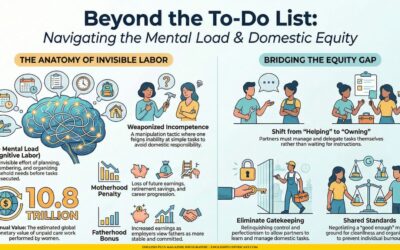The Gist
What Is Food Insecurity?
Food insecurity refers to the lack of consistent access to enough food for an active, healthy life. It’s not just about going hungry now and then—it’s about not knowing where your next meal will come from. Food insecurity can be temporary, due to short-term crises like job loss, or chronic, affecting people and communities over long periods. When individuals face food insecurity, they often sacrifice quality for quantity, choosing less nutritious, cheaper food options to get by.
Hunger, on the other hand, is the physical sensation of not having enough food. While hunger is often a direct result of food insecurity, the two terms aren’t interchangeable. Food insecurity points to a deeper issue—it’s about instability in access to food over time.
The Causes of Food Insecurity and Hunger
There isn’t one single cause of food insecurity. Instead, multiple factors work together to make access to food challenging for millions. Economic instability is a major contributor—when people can’t earn enough money, putting food on the table becomes a struggle. Rising food prices also play a part, making even basic groceries unaffordable for many households.
Climate change is another driver of food insecurity, especially for communities that rely on agriculture. Droughts, floods, and changing weather patterns disrupt food production, making it harder for farmers to grow crops and driving up food prices. In urban areas, food deserts—regions without access to affordable, healthy food—further limit people’s ability to eat well.
Conflict and displacement worsen the situation too. In war-torn areas, food systems break down, and people are often forced to flee, leaving behind their livelihoods. Refugees frequently experience food insecurity as they navigate life in new environments without stable income or resources.
The Impact of Food Insecurity
Food insecurity isn’t just about hunger—it has far-reaching impacts on health, education, and social stability. Malnutrition is a common consequence, weakening immune systems and making individuals more vulnerable to illness. For children, food insecurity is especially harmful. Hunger affects cognitive development, making it difficult for them to focus in school, which can have lifelong consequences.
On a broader scale, food insecurity destabilizes communities. When people don’t have enough to eat, they’re more likely to face unemployment, health issues, and social isolation. Food insecurity also perpetuates cycles of poverty—those who struggle with hunger often find it harder to improve their financial situation, creating a vicious cycle that’s difficult to break.
Efforts to Address Food Insecurity and Hunger
Despite the challenges, efforts to combat food insecurity are underway at both local and global levels. Food banks and community programs play a critical role in providing immediate relief, offering free or low-cost food to those in need. Schools often step in by offering meal programs to ensure children have access to nutritious food during the day.
On a global scale, organizations like the World Food Programme work to address hunger in conflict zones and areas affected by climate change. Initiatives focused on sustainable agriculture also aim to improve food security by helping farmers grow more resilient crops and access better markets.
Local governments and charities are tackling food waste as well—redirecting surplus food from grocery stores and restaurants to people in need. Reducing food waste not only addresses hunger but also helps mitigate the environmental impact of wasted resources.
What Can Individuals Do to Help?
Addressing food insecurity requires collective action, and there are ways for everyone to get involved. Volunteering at food banks or donating non-perishable items are simple but impactful ways to support those facing hunger. Raising awareness about the issue is also important—sometimes, just starting a conversation about food insecurity helps reduce the stigma associated with asking for help.
Advocating for policy changes that support fair wages, affordable housing, and sustainable agriculture can create long-term solutions. Additionally, supporting local farmers through farmers’ markets and choosing to waste less food at home are small but meaningful steps toward building more food-secure communities.
Building a Future Without Hunger
Food insecurity and hunger are complex problems, but they aren’t insurmountable. By understanding the causes and impacts, we can start working toward meaningful solutions. Whether it’s through volunteering, raising awareness, or supporting policy changes, everyone can play a part in the fight against hunger. It’s not just about feeding people today—it’s about creating a future where everyone has the resources they need to thrive.
Let’s Talk
Food insecurity and hunger—it’s one of those topics that feels too big to wrap your head around sometimes, isn’t it? We hear the numbers and read the reports, but it’s easy to feel disconnected from the issue, especially if you’re lucky enough not to experience it firsthand. But here’s the thing: food insecurity doesn’t always look like what we imagine. It’s not just about famine in far-off places—it’s also about the family down the street that has to choose between paying rent or buying groceries, or the college student who skips meals to afford textbooks. It’s everywhere, hiding in plain sight. And that’s what makes it so important to talk about.
One thing that really stands out about food insecurity is how unpredictable it can be. You don’t have to live in poverty your whole life to experience it. A sudden job loss, medical bills, or even a natural disaster can leave someone without enough to eat. It makes you realize how fragile things can be. Have you ever thought about what you would do if you suddenly had to get by on much less? Would you know where to go for help? It’s a sobering thought, but it’s also a reminder that these things can happen to anyone—and that’s why community support is so important.
And let’s talk about food deserts for a second. It’s wild to think that in some urban areas, people don’t have access to fresh, healthy food simply because there are no grocery stores nearby. Imagine having to do all your grocery shopping at a convenience store—how healthy could you really eat if your only options were processed snacks and canned soup? It’s not just about hunger—it’s about nutrition and well-being. When people don’t have access to nutritious food, it affects everything: their energy levels, their mental health, their ability to focus at work or in school.
The thing is, hunger is about more than just filling your stomach—it’s about stability and dignity. Think about how stressful it feels when your fridge is empty, and you know you’ll have to make a last-minute trip to the store. Now imagine that feeling every single day, knowing there might not be enough money to buy what you need. It’s exhausting, and that kind of stress builds up over time. It’s no wonder food insecurity can lead to long-term mental health struggles, not to mention physical health issues.
But here’s where the conversation takes a hopeful turn—because there are things we can do. It’s not just about big government policies or international aid programs (though those are important too). Small, local efforts make a huge difference. Volunteering at a food bank or donating to a community pantry is more impactful than we often realize. And it’s not just about handing out food—it’s about showing people they’re not alone. There’s something really powerful about a community coming together to support each other.
And then there’s food waste—did you know that nearly a third of all food produced globally gets thrown away? It’s crazy, right? What if more of that surplus food found its way to people in need instead of ending up in landfills? Reducing food waste at home might seem like a small act, but if everyone did it, we could make a serious dent in the problem. Sometimes it’s the little things—like planning meals more carefully or donating unused food—that add up to big change.
So, what do you think? Have you ever encountered food insecurity in your community, or maybe even in your own life? And what’s one small thing you could do to help? Whether it’s volunteering, donating, or just being more mindful about food waste, every little bit counts. After all, solving food insecurity isn’t just about charity—it’s about building a world where everyone has the opportunity to thrive.
Let’s Learn Vocabulary in Context
Let’s dive into some of the key vocabulary from our discussion about food insecurity and hunger and explore how these words show up in real life. First up is food insecurity. This phrase refers to not having reliable access to enough food to live a healthy life. It’s not just about skipping a meal—it’s the uncertainty of where your next meal will come from. Imagine someone working two jobs but still worrying if they’ll have enough money for groceries. That’s food insecurity in action. It highlights how this issue is about more than hunger—it’s about living with constant uncertainty.
Then there’s hunger. We often use the word casually, like when we say, “I’m starving!” while waiting for lunch. But hunger in the context of food insecurity is a more serious, physical sensation caused by not eating enough over a long period. It’s not just a passing feeling—it impacts people’s health and energy, making it harder to focus, work, or learn. Hunger isn’t just an empty stomach—it’s the body’s way of saying, “I need nourishment, now.”
Next, let’s talk about food deserts. This term refers to areas where people don’t have access to affordable, nutritious food, often because there are no supermarkets nearby. It’s hard to imagine if you’ve always lived near grocery stores, but picture having to buy all your food from a gas station or fast-food restaurant because that’s all that’s available. In real life, food deserts affect both urban and rural areas, limiting people’s options and forcing them to rely on processed or unhealthy foods.
Another key concept is malnutrition. This doesn’t just mean a lack of food—it’s about not getting the right nutrients. Someone might eat regularly but still suffer from malnutrition if their diet lacks essential vitamins and minerals. For example, a child who eats only junk food might not feel hungry, but they could still experience malnutrition. It’s a reminder that hunger isn’t just about quantity—it’s also about quality.
Let’s not forget food waste, which is a major issue tied to hunger. It’s shocking to think that so much food goes to waste when millions of people are hungry. Have you ever thrown away leftovers or let groceries go bad? That’s food waste in action. It’s not just a waste of food—it’s also a waste of the resources that went into producing it. Being mindful of food waste, whether at home or in restaurants, is one way we can all make a difference.
Finally, there’s community support. This phrase captures the idea of people coming together to help each other through tough times. Whether it’s through food banks, meal programs, or neighborhood initiatives, community support is essential in fighting food insecurity. It’s a reminder that we’re all connected and that small acts of kindness—like donating to a food drive—can have a big impact.
So, what do you think? Have you ever noticed food waste in your daily life or found yourself in a situation where access to nutritious food was limited? And how do you think communities can do more to support those facing food insecurity? These words might seem simple, but they reflect real challenges—and opportunities to make a difference—in the world around us.










0 Comments